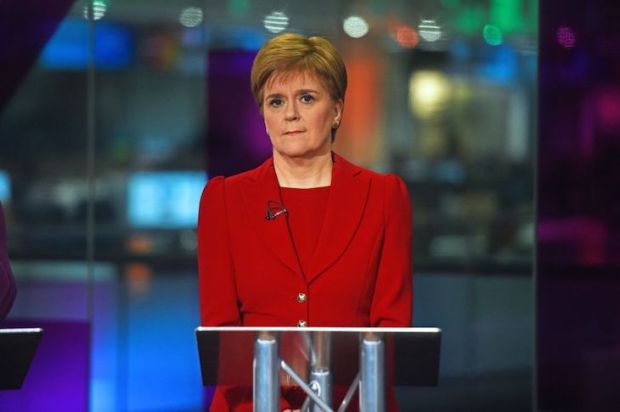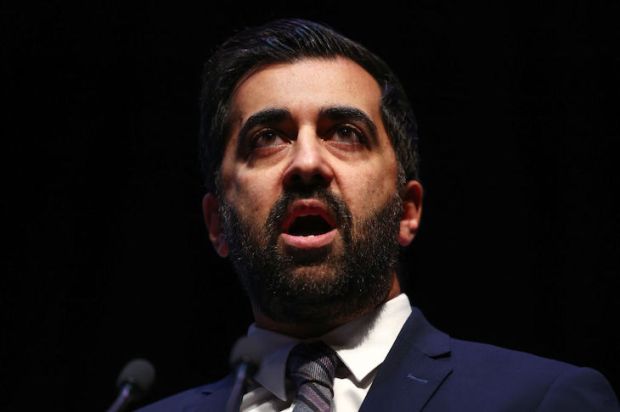The EU courts are not like our courts. They are given a specific purpose of advancing the union. That purpose can be hard to spot and does get denied. I would say that is a court being required to do politics. Our courts do not try to advance the interests of our country – they just do law.
In 2014 on the EU Courts the more diplomatic Foreign Office said ‘Both principles [subsidiarity and proportionality] are “legal” principles in that the EU institutions are bound by them and cannot legally act in breach of them. However, given their nature, they require significant political judgment’. Those quote marks in paragraph 2.7 are doing a titanic amount of heavy lifting.
But they are not like our courts and we’ve just seen the European Court of Justice accused of constructing a parallel universe by one eminent professor of law and being akin to something out of Alice in Wonderland by another.
So what’s happened? Well, a lot comes down to the type of lawyers I, and these two professors, are. We are private international lawyers. Just as inside the UK I play my part in making the economy function, so outside the UK this type of law keeps the global economy ticking along. And unlike public lawyers, we are not constantly exposed to politics in our day jobs.
Now, if you are a member of the EU there is a system where each member state recognises each other state’s courts as legitimate. Lots of courts exist around the world and just as we only recognise some parts of international law – so other countries, including the EU, only recognise some courts. When we left, the EU said the UK could no longer be a part of this system of mutually recognising each other’s courts as courts. They refuse to recognise our courts. That was a political decision and people have different views on that.
But private international law is a system designed to make business happen. As a global structure, it wants trade to be possible. And we have the 1958 New York Convention – that’s a system of international law designed to overcome problems with courts. If two businesses don’t trust local courts – they use arbitration. So if any country takes the political decision to stop business happening by trying to prevent a court system working, we private international lawyers answer in chorus ‘use arbitration’.
Just nine days before we left the EU, a fight between Spain and an insurance company got referred by an English High Court to the European Court of Justice. Both sides had agreed to use arbitration. But Spain changed its mind (which you can’t do) and wanted to use its own courts. Using your own court is something the EU likes to do too. If you want to make a contract with a nation and you don’t trust its courts, we use arbitration.
So, the company made the arbitration happen anyway. In our jurisdiction. The High Court in London got appealed to the Court of Appeal for even asking the EU Court its thoughts – the High Court made a mistake even asking the ECJ. The law Spain relied on before the ECJ to try to wriggle out specifically says you can’t rely on this law to stop arbitration.
So every sane lawyer expected the EU court to agree with our courts. It didn’t. And the law the EU relied on to block arbitration also does not apply to arbitration. The EU used to know that – see the line here: ‘This Regulation should not apply to arbitration’. That’s what both professors say and what I agree with – they can’t do what they did. That’s where Humpty Dumpty comes in ‘“When I use a word”, Humpty Dumpty said in rather a scornful tone, “it means just what I choose it to mean – neither more nor less”.’ If a law says ‘Apples are fruit’ then a court that says ‘Apples are not fruits’ then the court is not applying the law – it has created a parallel world – a farce of law.
Because we are out, we’re OK. The UK will still have a functioning system of arbitration. And because our Court of Appeal is not mad, our legal system is safe and you can’t use this law against arbitration. Why did the EU do this? Well, it means one billion dollars move from London to Madrid.
But by doing this the ECJ has messed up law inside the EU. That is what both professors object to – we private international lawyers care about our law. But this is not the first complete and total farce of law that the ECJ has been involved in. Here is one, here another. It is neck-deep in the EU-wide rule of law crisis which spans a lot of my writing. Soon MPs and peers will vote on whether or not we should be subject to it via the Northern Ireland Protocol – they should read up on it.
Got something to add? Join the discussion and comment below.
Get 10 issues for just $10
Subscribe to The Spectator Australia today for the next 10 magazine issues, plus full online access, for just $10.



















Comments
Don't miss out
Join the conversation with other Spectator Australia readers. Subscribe to leave a comment.
SUBSCRIBEAlready a subscriber? Log in